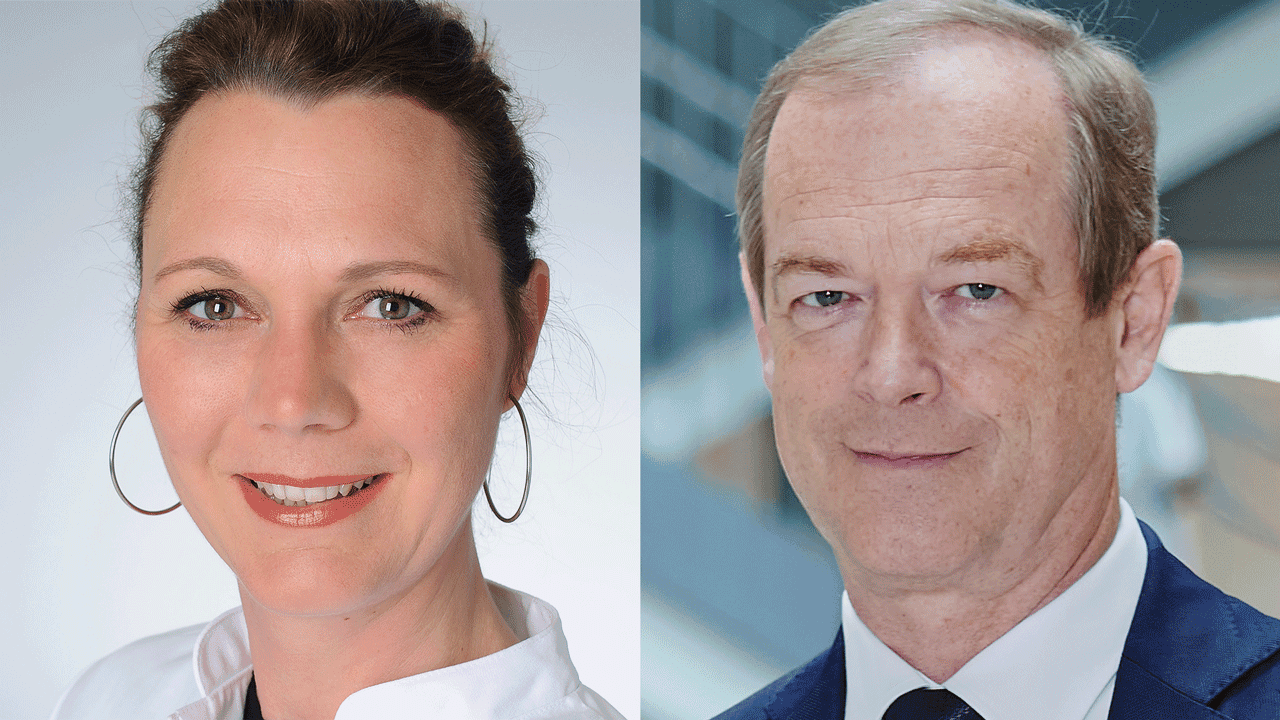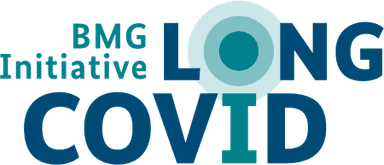Note: The following text is a guest article. They reflect the personal views of the author. The article is not an expression of opinion by the Federal Ministry of Health.
Guest article: Prof. Dr. Clara Lehmann and Prof. Dr. Michael Hallek
The post-Covid syndrome is a severe somatic disease with biological causes, write guest authors Prof. Dr. Clara Lehmann and Prof. Dr. Michael Hallek in their joint guest article. They emphasise that it is not a psychosomatic disease.
Published on: 07/12/2023

© Copyright: MedizinPhotoKoeln der Uniklinik Köln
Post-COVID syndrome (Long COVID): severe somatic disease with biological causes
The post-COVID syndrome (PCS) can be compared to similar "post-acute infection syndromes" (PAIS) caused by viruses such as Ebola, dengue, Epstein-Barr virus (EBV), MERS-CoV, SARS-CoV-1 or influenza. Thanks to research on these post-acute infection syndromes, synergistic insights into the pathomechanisms of PCS can be gained. SARS-CoV-2 and the PCS now offer the opportunity to learn more about the underlying mechanisms of PAIS, since these are still poorly understood and they are like a kind of "black box" in the medicine field.
Which symptoms are actually attributed to infection with SARS-CoV-2?
In the strict sense, clearly distinguishing PCS from other medical problems, such as persistent symptoms of COVID-19 infection, biological correlations or psychosocial stress caused by the pandemic, is fundamentally important for researchers as well as patients. However, distinguishing PCS from other diseases is complicated by the lack of specific biomarkers for PCS.
Symptoms of the post-COVID syndrome (PCS)
The disease condition is defined by a confirmed or probable history of SARS-CoV-2 infection, wherein symptoms usually arise three months after the onset of COVID-19 infection and last for at least two months. Symptoms include fatigue, shortness of breath, cognitive impairment and many other symptoms that have been shown to affect the quality of life.
Symptoms may be new or persist since COVID-19 infection and cannot be attributed to another diagnosis. PCS can affect all organ systems, including the heart, lungs, kidneys, spleen, liver, pancreas, immune system, gastrointestinal tract, neurological system, blood vessels, and male and female reproductive systems. This multi-systemic impact complicates research significantly. The prevalence of PCS in the European population is influenced by several individual and environmental factors. As regards individual factors, prevalence is highest in women, in the 25-69 age group and in people hospitalised for SARS-CoV-2 infection. Socioeconomic factors also play a role, with residents of disadvantaged areas, economically inactive people and people with health limitations seem to be more affected. On the other hand, vaccination seems to reduce the risk of PCS disease by 15-50%.
Post-COVID syndrome - a problem even in mild or asymptomatic progressions
The PCS also observed in people in whom the original symptoms were mild during the acute phase: Thus, only mild symptoms such as cough, fatigue or mild respiratory problems may appear during the acute phase of the infection, but long-term effects such as persistent fatigue, memory problems, muscle weakness or respiratory problems may still arise. This highlights the complexity and diverse presentation of the PCS, which is further researched to enable better understanding and appropriate support for all those affected.
Current knowledge about the disease
Currently, numerous different causes of the PCS are known, including: Persistence of the virus in the body, overreaction (hyper inflammation) of the immune system, mitochondrial dysfunction, dysfunctional neurological signalling, autonomic nervous system involvement, endothelial dysfunction, clotting disorders or vascular damage. A better understanding of the causes of the PCS is crucial for developing optimal treatment and care for patients.
Care and treatment of patients
People affected by the PCS often face scepticism in their family and work environment. In addition, the PCS is often not recognised by doctors. Since there are no clear diagnostic biomarkers for routine diagnosis so far, the diagnosis of the PCS currently relies mainly on clinical examinations (Hallek et al., DÄB (German Medical Women’s Association) Int 2023; 120: 48-55; DOI: 10.3238/arztebl.m2022.0409). The treatment of the PCS is often costly and complex. Therapeutic management of the PCS is currently individualised and symptom-oriented. Unfortunately, due to limited medical knowledge, patients with the PCS sometimes receive inappropriate, and sometimes even harmful, treatments.
Review of different therapeutic approaches in clinical trials
The PCS is a complex condition for which there are no specific treatment options as present. There are no clear molecular or non-molecular diagnosis markers. Therefore, clinical criteria are used to diagnose the (https://www.who.int/publications/i/item/WHO-2019-nCoV-Post_COVID-19_condition-Clinical_case_definition-2021.1), which are not always separable. Patients with the PCS do often suffer to a great deal. In this situation, it is all the more important that the diagnosis as well as the resulting therapy recommendations are made in a reflective and critical manner, and that they are well documented and scientifically verified. At the same time, this means that every new therapeutic approach should be tested within the scope of clinical trials. This is the only way to assess whether an improvement in symptoms is achieved. Ultimately, a range of effective treatment options for patients with the PCS can be developed only with a solid scientific knowledge base. This requires the cooperation of all physicians.
Conclusions and recommendations
- The PCS is a severe somatic disease with biological causes. It is not a psychosomatic disease.
- In case of the PCS, various causes can in principle affect all organ systems of patients. The most common symptoms are extreme fatigue, insomnia, shortness of breath, cardiovascular problems and difficulties in concentrating. The PCS is also characterised by stress intolerance, which means that physical or mental exertion or stress worsens the symptoms.
- The PCS is a chronic disease that lasts for several months or years, where convalescence are characterised by fluctuations with periods of relapse.
- The most important prevalence factors for the PCS are female gender, age range (25-69 years) and hospitalisation after an infection with SARS-CoV-2. It is undisputed that vaccines can also cause complications. However, it is very well documented that vaccination against COVID-19 protects against the development of the PCS.
- The causes of the PCS are manifold. The main causes are thought to be damage to the vascular endothelium, over-activation of the immune system and/or viral persistence. Further research is urgently needed to understand the respective causes and their interaction in a better manner.
- Current treatment of the PCS is not curative, but symptom-oriented (individual multi-modal rehabilitative treatments). A number of medicines are undergoing clinical trials.
Vita
Prof. Dr. Clara Lehmann:
Prof. Clara Lehmann is a renowned researcher in the field of clinical infectiology. Currently, Prof. Lehmann is a senior physician in the Clinic I for Internal Medicine at the University Hospital of Cologne. She heads the interdisciplinary post-COVID outpatient clinic, which specialises in the care of patients with Long COVID. Her work includes not only the direct care of patients, but also the implementation of scientific projects and clinical studies on the topic of Long COVID.
Prof. Lehmann strives to increase the understanding of this new disease and to develop innovative approaches to improve the treatment and care of patients. Her contributions to medical research and her dedicated work in patient care make her a sought-after figure in her field.
Prof. Dr. Michael Hallek:
Prof. Michael Hallek is Director of Clinic I for Internal Medicine at the University Hospital of Cologne, Director of the Centre for Integrated Oncology CIO Cologne and spokesperson for the NCT West. Prof. Hallek's scientific focus is on research into the molecular pathogenesis of CLL and the development of targeted therapies to improve the prognosis of CLL in the long term. Prof. Hallek has been Chairman of the Scientific Advisory Board of the German Medical Association since December 2022 and a member and Chairperson of the Expert Council for the Assessment of Developments in Health Care and Nursing since February 2023.
Prof. Hallek is highly committed to ensuring that the complexity of the disease of post-COVID syndrome is adequately taken into account and that research into the syndrome and novel treatment approaches is promoted. In order to tackle this challenge, the Post-COVID Syndrome Working Group of the Scientific Advisory Board of the German Medical Association was established in January 2022. Together with representatives of various specialist medical disciplines, Prof. Hallek was in charge of the working group. In the resulting statement on post-COVID syndrome, the topics of improving the data situation on post-COVID syndrome, prevention, care of affected persons and information of the population were dealt with and recommendations for action were made.
